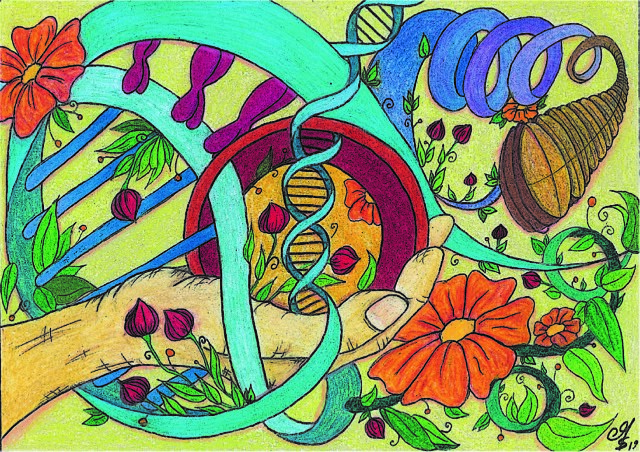


Genetics is a field of biology that deals with the inheritance and variation of genetic material in organisms. It examines the structure, function and transmission of DNA.
The genome consists of the entire genetic information, which is organized in the form of ring-shaped DNA plasmids (bacteria; prokaryotes) or long strands of chromosomes consisting of DNA (eukaryotes).
To pass on genetic information, the DNA must be duplicated true to the original (replication) and the exact copy then passed on to the daughter cells. Through the process of meiosis and the associated recombination, genetic characteristics are passed on from parents to their offspring, thereby supporting genetic diversity and adaptability within a population. Errors in these and other processes that lead to mutations can, if not corrected, lead to evolutionary progress or disease.
Within the DNA are the coding regions, the genes that are copied into RNAs (transcription) and contain the instructions for the production of proteins (translation). In addition to the genes, there are also regulatory genomic regions that control the activity of genes by regulating transcription. These regulatory regions contain promoters, enhancers and other elements that can influence gene expression. In addition, there are - especially - non-coding regions of DNA in eukaryotes that do not directly code for proteins, but may still have important functions, such as for the production of non-coding RNA molecules like miRNAs and lncRNAs. Overall, this complex organization of the genome forms the basis for the regulation and execution of genetic processes in an organism.
Epigenetics expands this understanding by looking at changes in gene activity that are not attributable to changes in the DNA sequence itself in eukaryotes. It deals with the regulation of genetic material through its packaging, the chromatin. This is controlled by chemical markers during embryonic development and by environmental influences. These modifications can influence gene expression without, however, changing the underlying DNA sequence. Overall, genetics and epigenetics together consider the complex interactions between genes and the environment that contribute to the development, health and diversity of living organisms.
Both genetic and epigenetic changes play a decisive role in the development of a large number of diseases. Research into the fundamental processes that are altered by these (epi)mutations is therefore immensely important in order to better understand the development, diagnosis, therapeutic development and treatment of diseases.